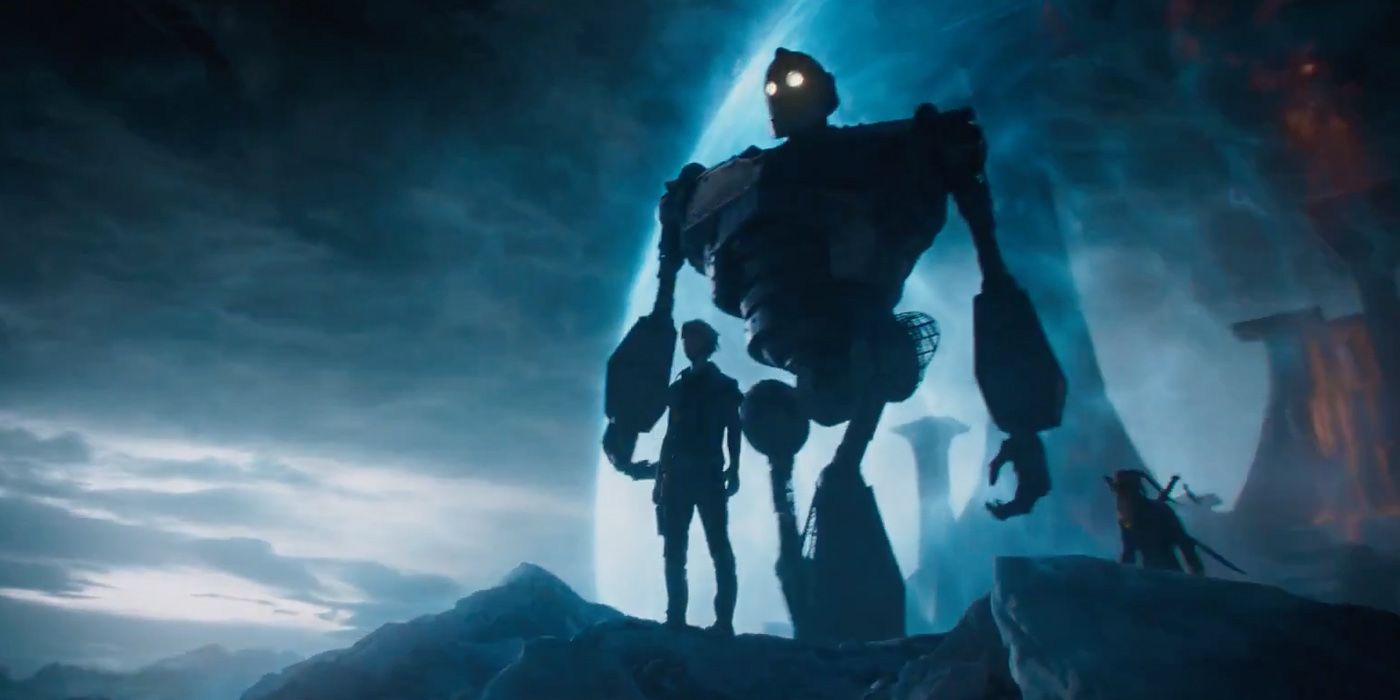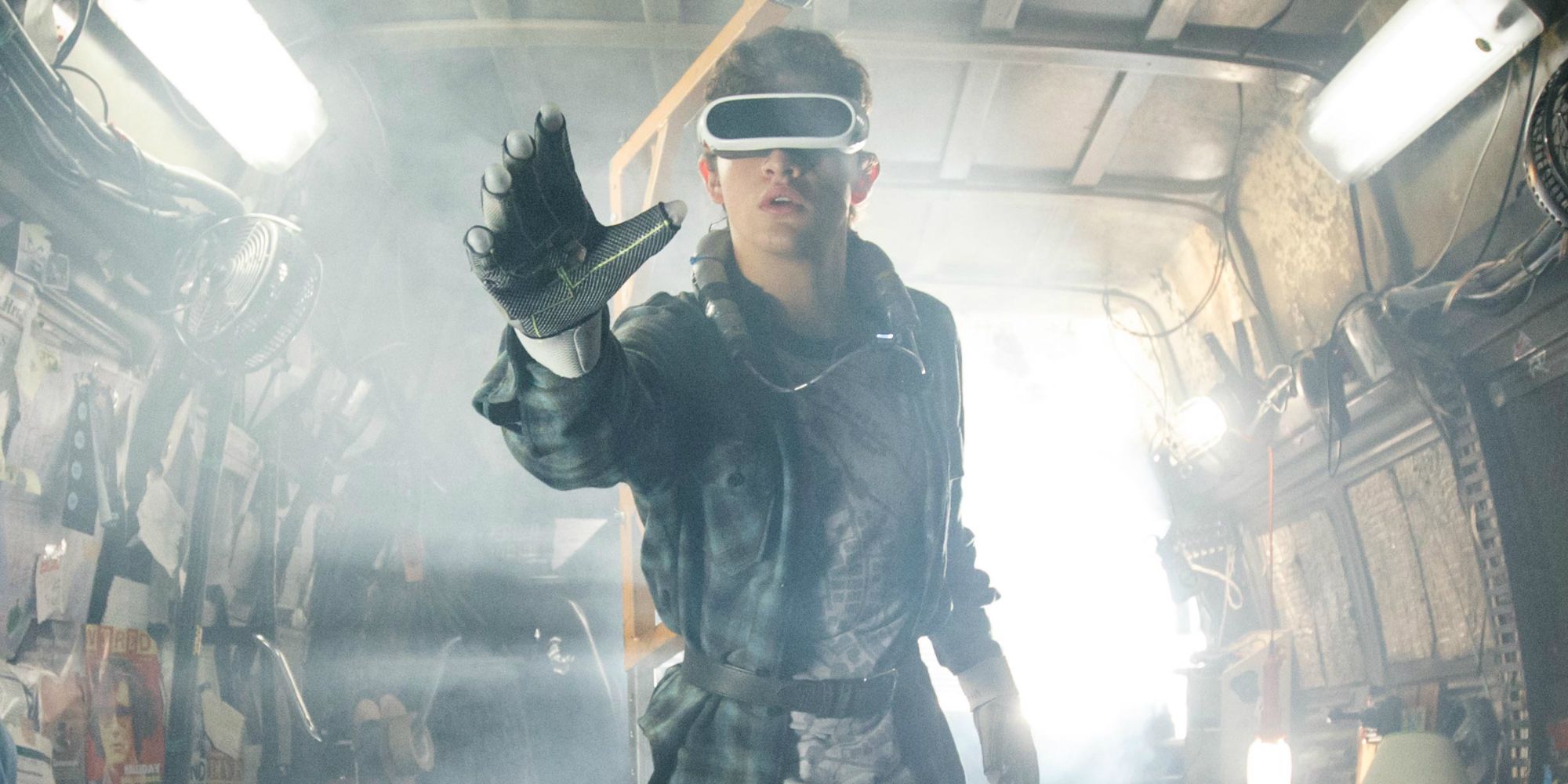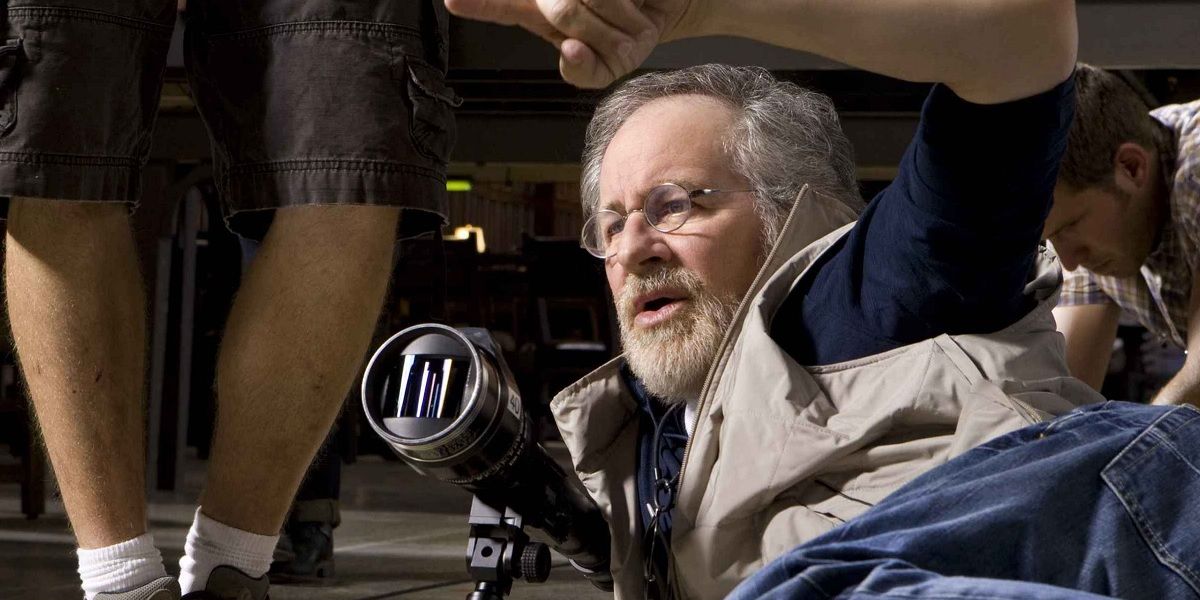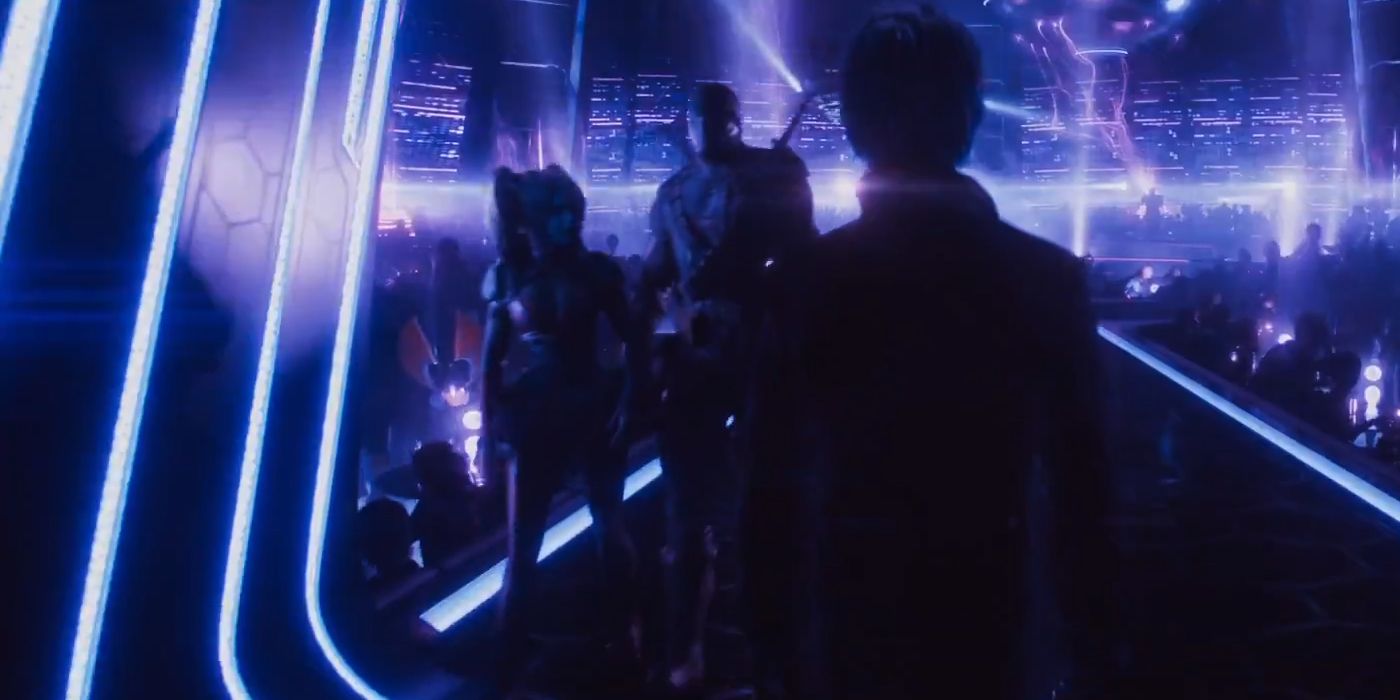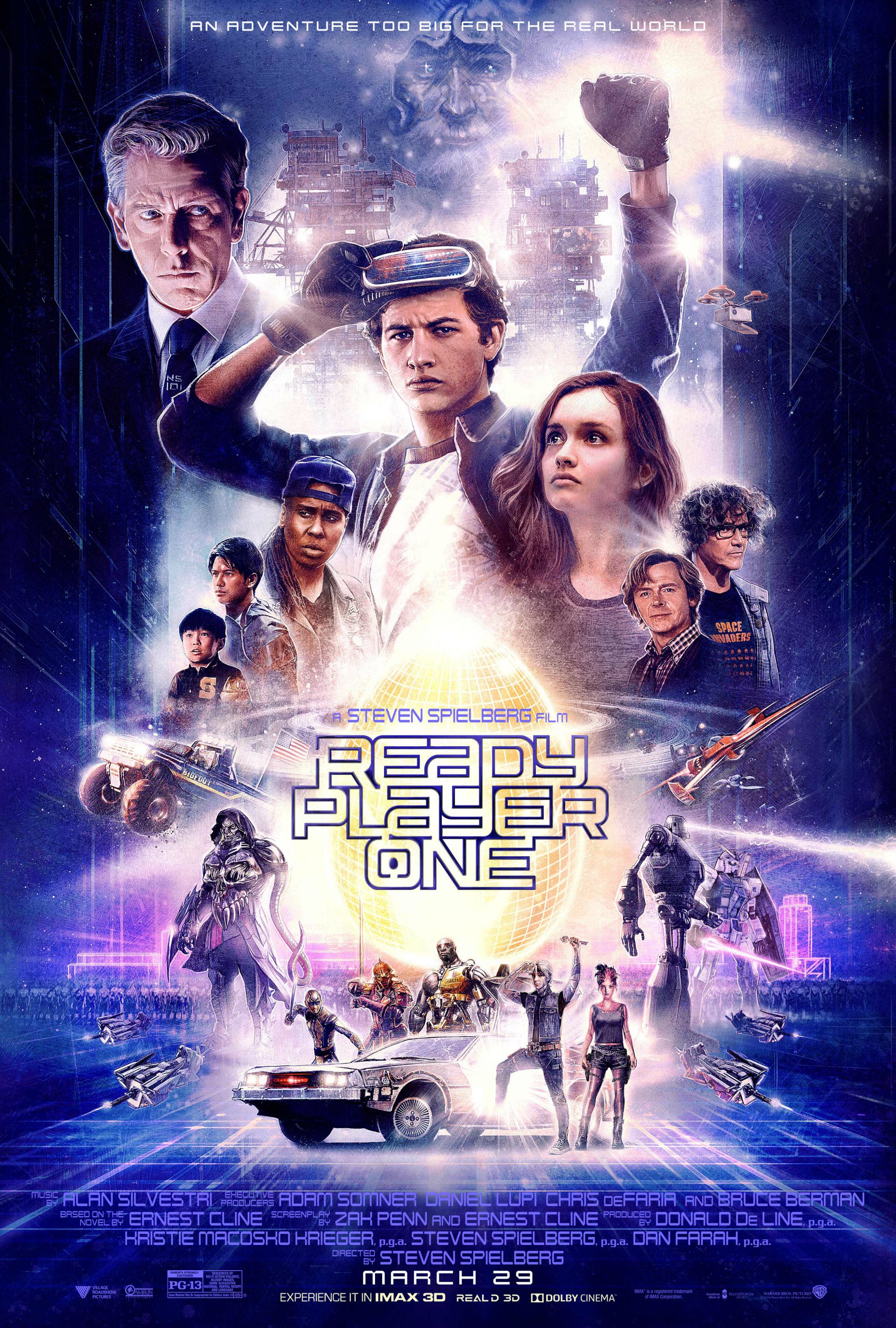The debut trailer for Steven Spielberg's movie adaptation of Ernest Cline's cult novel Ready Player One got the kind of major rollout at SDCC one generally expects from a big-budget sci-fi/action film about near-future youths navigating a virtual reality word comprised primarily of 1980s nerd-culture references. Attendees gave a general thumbs-up to "money shots" like a guns-blazing battle between (among other things) Freddy Krueger, Duke Nukem and the ostriches from Joust, and a battle-race featuring Back to The Future's DeLorean, Stephen King's Christine and the motorcycle from Akira.
But among the general public, members of the broader entertainment press, people who haven't read (or heard of) Cline's book and generally those outside the demographic niches typically associated with Comic-Con attendance, the reaction has been decidedly more mixed. Many don't seem to know what to make of it, while social media was immediately inundated with parodyists satirizing the "tornado of references" visuals, making unfavorable comparisons to The Big Bang Theory (the network sitcom, not the actual theory), and holding up Cline's title card referring to a "Holy Grail of Pop-Culture" for ridicule. "Bazinga-ass s***" and "What would happen if Teefury re-made Tron" were among the more colorful put-downs tossed its way (it must be said, of course, that many fans of the book and/or the various things being referenced had the opposite reaction.)
Perhaps more substantively, it served as an occasion for many who'd been critical of the original book but (in some cases) had felt "shouted down" by the ultra-zealous following it had immediately attracted to re-air their grievances freshly. If you track news (or attendant social-media feeds) associated with gaming or "film geek" culture, semi-out-of-context snippets of Cline's reference-heavy dialogue and what some have criticized as his flat ("and then, and then, and then") prose-style are now a common sight. These were typically followed by aghast reactions from those previously unaware of the book wondering aloud why Spielberg is bothering with such material - and, eventually, a smattering of defenses from fans.
Whether you're a fan or not, it's pretty easy to see why Ready Player One isn't for everyone. Its target audience has always felt somewhat narrow - it's aimed all-but exclusively at fans who'd identify with the main character, Wade Watts (a geek-culture-memorizing video game master who worships the movies, comics and genre-TV of the late-20th Century), and who'd immediately recognize the "coolness" inherent plot details like virtual-reality combatants conjuring Ultraman and Mechagodzilla to do their fighting... and also have it explained to them anyway.
But it's also not hard to see why something as seemingly innocuous as "Willy Wonka meets The Running Man in a Think Geek store" engenders such equally passionate unease. The now culturally-dominant collection of genres and media collectively referred to as "geek culture" has found itself at a generational crossroads, with divisions both real and imagined between different stripes of fandom over issues of representation, appropriation and the like. In that context, Cline's hyper-literalized young male nerd empowerment fantasy has been criticized (even by some fans) for what some see as an unwillingness to regard female supporting characters beyond barometers of Wade Watts' hero's-journey... or to be critical of its protagonist, period.
In a more direct sense, though, the question hanging over Ready Player One in strict terms of functionality as a narrative film is whether or not it can effectively become "more" than a running streak of familiar references - which it's going to need to be in order to appeal to a global audience beyond the initial readership of Cline's book. And the answer to that all but certainly lies with Steven Spielberg himself.
When it comes to adaptations, Spielberg is himself no stranger to challenging adaptations - or to elevating the material therein. He made his name as one of the early kings of the emergent "Summer blockbuster" field in the 70s by transforming Peter Benchley's killer shark potboiler Jaws (a bestseller at the time but not generally considered to be top-tier literature) into a lean, thoughtful, character-driven horror masterpiece. He performed similar magic on Michael Crichton's Jurassic Park, infusing a narrative some had criticized as a dinosaur-themed revisiting of the author's previous hits (mostly Westworld) with a sense of awe and wonder that made it one of the biggest box-office hits of all time. Even if you think those who judged Ready Player One to be an intellectually shallow work were being overly harsh, it's hard to argue that Spielberg isn't a good bet to find even greater depths in its ideas.
More substantively, however, the director of E.T. and Raiders of The Lost Ark could conceivably provide the answer to the more widespread critique of the book's own lack of a critical eye - or, at the very least, a generational counterpoint to the euphoric conception of 80s pop-ephemera nostalgia built into Cline's vision. Once vanguard and now an elder-statesman of the Baby Boomer "film school generation" of pop-filmmakers, Spielberg is both himself a child of the first generation of modern Americans to practice "extended adolescence" through commodified nostalgia, and one of the chief architects of passing that trend off to Generation X in spectacularly-elevated fashion. In other words, he knows firsthand both what it is to "be" Player One at 20, but also to look back on it from 70. The Atari-age callbacks that an author Cline's age can't help but view as mystical treasured icons are, to Spielberg, very real, tactile things; in some cases, he even participated in the making of them.
Given that, he may be the ideal person to (through adaptation) bring a sense of scope and perspective to this material - if he chooses to. The 80s were indeed an era packed with classic geek ephemera, but part of the reason for that came from a political climate (the explosion in toy/game/movie-based children's entertainment happened because the Reagan Administration did away with rules preventing kids TV shows from being outright commercials for things) that not everyone remembers with nearly as rosy a view. By that same token, even many folks who grew up loving the same deluge of quirky scifi/fantasy-themed consumer products as Cline grew up to instead see them not as cherished artifacts, but as remnants of conspicuous consumption.
There's nuance to be found in such contradictions, in examining either the dark side of memorializing an era strictly through a pop-culture lens, or the insight that can come from confronting the reality of such memorials. That may not be the only path to transforming Ready Player One into a transcendentally great film, but it's one of them - and if there are indeed others, Steven Spielberg is likely the filmmaker to find them.

